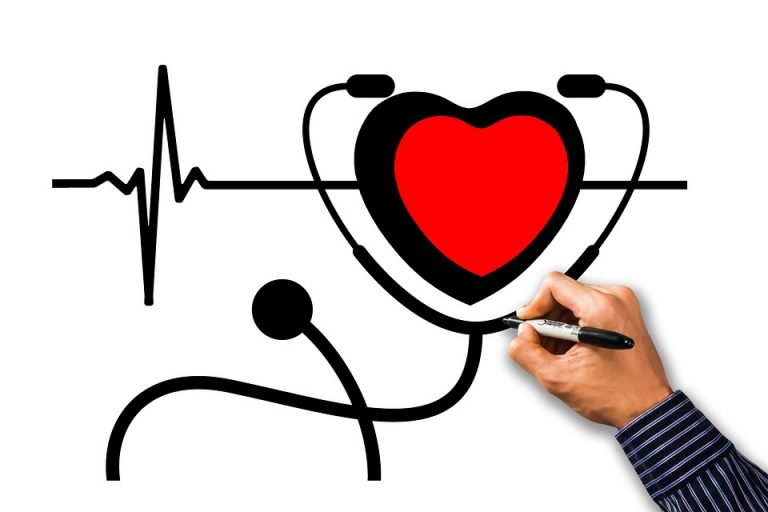7 Natural Remedies for a Happier Gut Today! Your gut health is more than just a trending topic—it’s the cornerstone of your overall well-being. When your gut thrives, your mood brightens, your energy surges, and your body feels alive. But when it’s unhappy, everything from digestion to your emotional state can take a hit. Let’s explore how you can nurture your gut with seven natural remedies that will turn your discomfort into delight.
Contents
- What is Gut Health and Why Does It Matter?
- 1. Probiotics: The Friendly Bacteria
- 2. Prebiotics: The Gut’s Favorite Food
- 3. Fiber: The Gut’s Best Friend
- 4. Fermented Foods: Nature’s Probiotic Powerhouses
- 5. Hydration: The Unsung Hero
- 6. Mindful Eating: Connection Between Mind and Gut
- 7. Stress Management: Calm Your Mind, Heal Your Gut
- Bottom Line
What is Gut Health and Why Does It Matter?
Gut health refers to the balance of microorganisms living in your digestive tract. It’s crucial because these tiny helpers not only aid in digestion but also play a significant role in your immune system, mental health, and even skin appearance. If your gut isn’t happy, neither will you be. So, why should you care? Because a happier gut means a happier you.
1. Probiotics: The Friendly Bacteria
What Are Probiotics?
Probiotics are live bacteria that are good for your health, especially your digestive system. When you think of gut health, think probiotics. They help maintain the natural balance of organisms (microflora) in your intestines.
How to Incorporate Probiotics
- Yogurt: Choose live-culture yogurt for a delicious and creamy boost.
- Kefir: A fermented drink packed with probiotics.
- Sauerkraut: This tangy fermented cabbage is not just a side dish; it’s a gut-loving powerhouse.
- Kimchi: A spicy, fermented dish that’s great for your gut and your taste buds.
Probiotics can significantly improve your gut flora, leading to better digestion and even improved mood. Studies show that they can help with anxiety and depression, making them a double win.
2. Prebiotics: The Gut’s Favorite Food
What Are Prebiotics?
Think of prebiotics as food for the good bacteria in your gut. They’re non-digestible fibers that feed probiotics, helping them flourish.
Delicious Sources of Prebiotics
- Garlic: Adds flavor while feeding your healthy gut bacteria.
- Onions: Whether raw or cooked, they’re a gut-health superstar.
- Bananas: A sweet snack that also boosts your gut flora.
- Asparagus: A crunchy delight that’s great in salads and stir-fries.
By adding prebiotics to your diet, you’re not only improving your gut health but also enhancing your overall well-being.
3. Fiber: The Gut’s Best Friend
Why Fiber Matters
Fiber is crucial for maintaining a healthy digestive system. It helps regulate bowel movements and can prevent issues like constipation.
High-Fiber Foods to Try
- Beans: Packed with protein and fiber.
- Whole Grains: Think brown rice, quinoa, and oats.
- Fruits and Vegetables: Berries, apples, carrots—load up!
- Nuts and Seeds: Almonds and chia seeds are great choices.
Aim for at least 25-30 grams of fiber each day. When your gut is happy, your body functions better, and you have more energy to enjoy life.
4. Fermented Foods: Nature’s Probiotic Powerhouses
What Are Fermented Foods?
Fermented foods are rich in probiotics and can significantly boost gut health. They’re made through the fermentation process, which involves converting sugars to acids or alcohol using microorganisms.
Fermented Food Favorites
- Miso: A traditional Japanese seasoning that’s great in soups.
- Tempeh: A fermented soybean product that’s high in protein.
- Pickles: Naturally fermented pickles can be a crunchy snack.
- Kombucha: This fizzy drink is a tasty way to get your probiotics.
Incorporating fermented foods into your daily routine can lead to improved digestion and a happier gut.
5. Hydration: The Unsung Hero
Why Hydration is Key
Water plays a vital role in digestion and nutrient absorption. Staying hydrated keeps everything moving smoothly in your digestive tract.
Tips for Staying Hydrated
- Drink Water First Thing: Start your day with a glass of water to kickstart your metabolism.
- Add Flavor: Infuse your water with lemon, mint, or cucumber for a tasty twist.
- Eat Water-Rich Foods: Cucumbers, watermelon, and oranges can help keep you hydrated.
Always listen to your body’s thirst cues. Proper hydration supports not just your gut health, but your entire body.
6. Mindful Eating: Connection Between Mind and Gut
What is Mindful Eating?
Mindful eating encourages you to be present while you eat, focusing on the flavors, textures, and sensations. This practice can enhance your digestion and overall relationship with food.
How to Practice Mindful Eating
- Slow Down: Chew your food thoroughly and savor each bite.
- Limit Distractions: Put away your phone and turn off the TV during meals.
- Listen to Your Body: Eat when you’re hungry and stop when you’re satisfied.
Mindful eating can reduce stress and improve how your body processes food, leading to a happier gut.
7. Stress Management: Calm Your Mind, Heal Your Gut
The Gut-Brain Connection
Did you know that your gut and brain are closely connected? Stress can wreak havoc on your digestive system, leading to issues like bloating and discomfort.
Stress-Relief Techniques
- Meditation: Just a few minutes daily can work wonders.
- Yoga: Gentle movements paired with breathing can soothe your mind and gut.
- Nature Walks: Spend time outdoors to clear your mind and reduce stress.
Taking care of your mental health directly impacts your gut health. When you’re calm, your gut can thrive.
Bottom Line
Your gut is a vital part of your overall health, and it’s time to show it some love. By incorporating these seven natural remedies into your life, you’ll not only feel better but also enhance your overall well-being. Start today—your happier gut awaits!
FAQ
How long does it take to notice changes in gut health?
You might start feeling better within a few days to weeks, but lasting changes can take a few months.
Can I take probiotics if I’m on medication?
Always consult with your healthcare provider before starting any new supplement, especially if you’re on medication.
Are there foods I should avoid for gut health?
Processed foods, high sugar, and excessive alcohol can negatively impact gut health. Focus on whole foods for the best results.
Take the first step toward a happier gut today! You deserve it.
Get Your FREE Natural Health Guide!
Subscribe now and receive our exclusive ebook packed with natural health tips, practical wellness advice, and easy lifestyle changes, delivered straight to your inbox.




